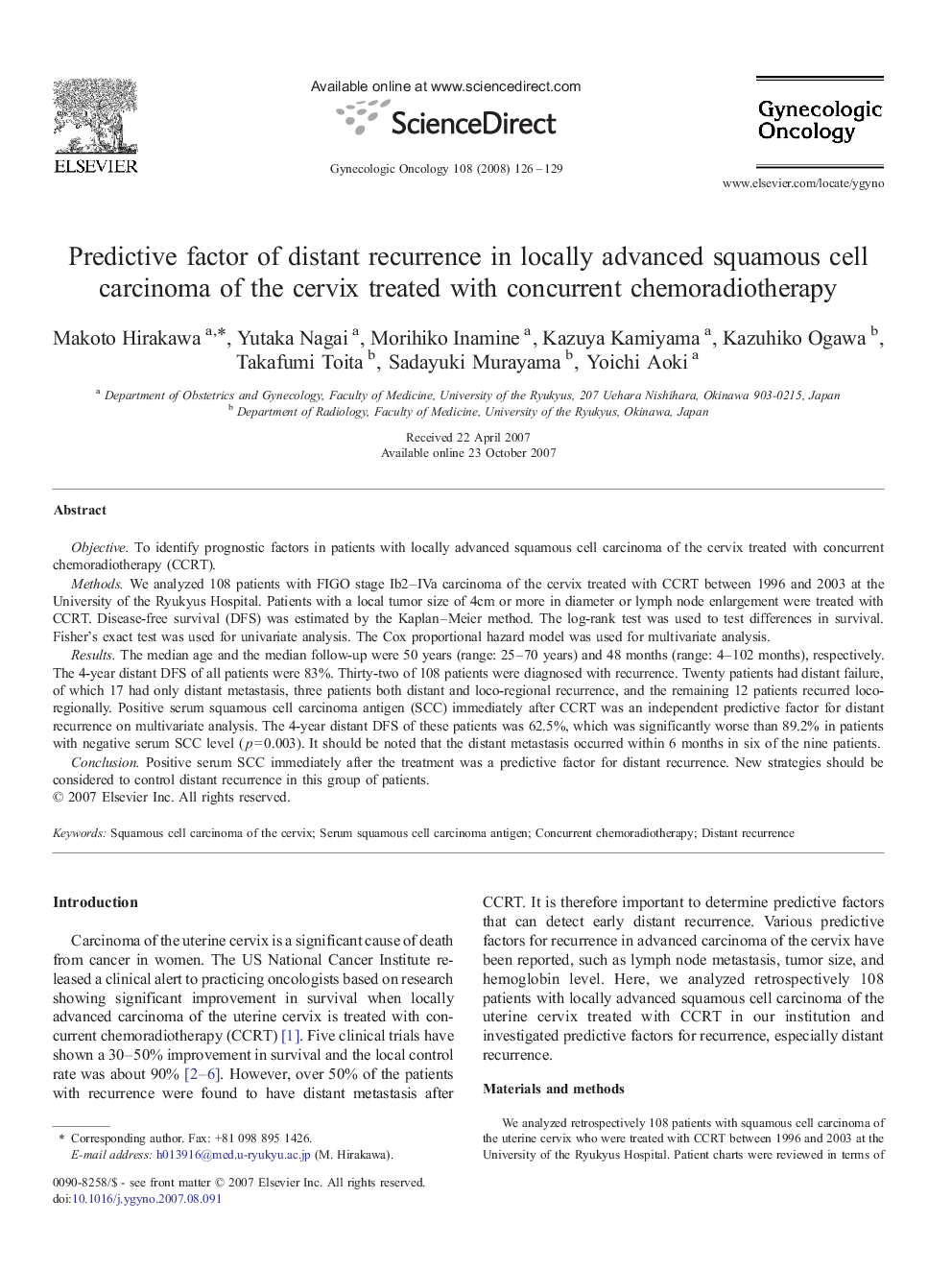| Article ID | Journal | Published Year | Pages | File Type |
|---|---|---|---|---|
| 3943385 | Gynecologic Oncology | 2008 | 4 Pages |
ObjectiveTo identify prognostic factors in patients with locally advanced squamous cell carcinoma of the cervix treated with concurrent chemoradiotherapy (CCRT).MethodsWe analyzed 108 patients with FIGO stage Ib2–IVa carcinoma of the cervix treated with CCRT between 1996 and 2003 at the University of the Ryukyus Hospital. Patients with a local tumor size of 4cm or more in diameter or lymph node enlargement were treated with CCRT. Disease-free survival (DFS) was estimated by the Kaplan–Meier method. The log-rank test was used to test differences in survival. Fisher's exact test was used for univariate analysis. The Cox proportional hazard model was used for multivariate analysis.ResultsThe median age and the median follow-up were 50 years (range: 25–70 years) and 48 months (range: 4–102 months), respectively. The 4-year distant DFS of all patients were 83%. Thirty-two of 108 patients were diagnosed with recurrence. Twenty patients had distant failure, of which 17 had only distant metastasis, three patients both distant and loco-regional recurrence, and the remaining 12 patients recurred loco-regionally. Positive serum squamous cell carcinoma antigen (SCC) immediately after CCRT was an independent predictive factor for distant recurrence on multivariate analysis. The 4-year distant DFS of these patients was 62.5%, which was significantly worse than 89.2% in patients with negative serum SCC level (p = 0.003). It should be noted that the distant metastasis occurred within 6 months in six of the nine patients.ConclusionPositive serum SCC immediately after the treatment was a predictive factor for distant recurrence. New strategies should be considered to control distant recurrence in this group of patients.
